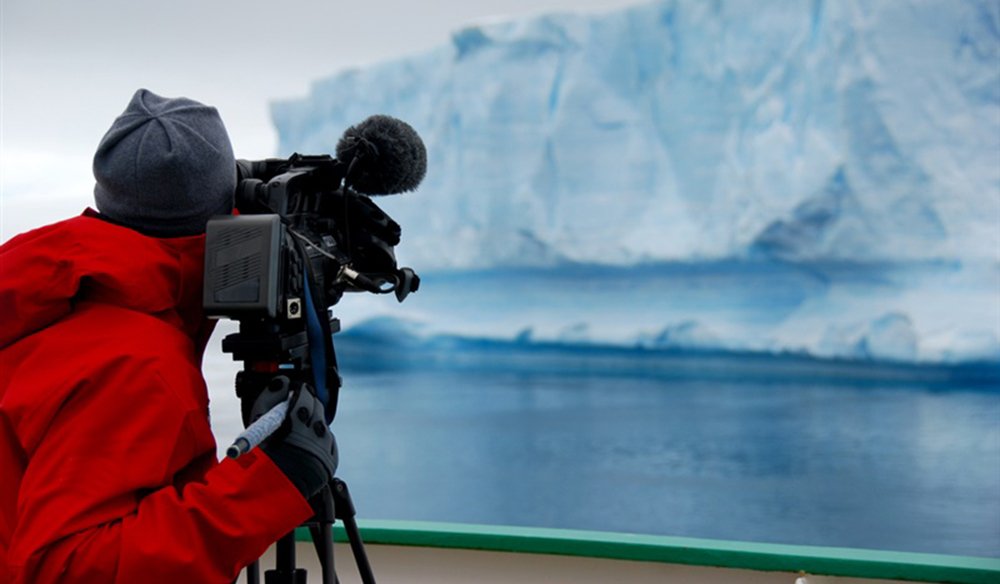
Movies
Film Consultant
The Fountain
Three stories - one each from the past, present, and future - about men in pursuit of eternity with their love. A conquistador in Mayan country searches for the tree of life to free his captive queen; a medical researcher, working with various trees, looks for a cure that will save his dying wife; a space traveler, traveling with an aged tree encapsulated within a bubble, moves toward a dying star that's wrapped in a nebula; he seeks eternity with his love. The stories intersect and parallel; the quests fail and succeed.
Film Consultant
Black Swan
BLACK SWAN follows the story of Nina (Portman), a ballerina in a New York City ballet company whose life, like all those in her profession, is completely consumed with dance. She lives with her retired ballerina mother Erica (Barbara Hershey) who zealously supports her daughter’s professional ambition. When artistic director Thomas Leroy (Vincent Cassel) decides to replace prima ballerina Beth MacIntyre (Winona Ryder) for the opening production of their new season, Swan Lake, Nina is his first choice. But Nina has competition: a new dancer, Lily (Kunis), who impresses Leroy as well. Swan Lake requires a dancer who can play both the White Swan with innocence and grace, and the Black Swan, who represents guile and sensuality. Nina fits the White Swan role perfectly but Lily is the personification of the Black Swan. As the two young dancers expand their rivalry into a twisted friendship, Nina begins to get more in touch with her dark side with a recklessness that threatens to destroy her.
Noah
Film Consultant
Noah is chosen by God to undertake a momentous mission before an apocalyptic flood cleanses the world. "In the beginning, there was nothing." So starts this version of the story centered on Noah (Russell Crowe), the man entrusted by God to save the innocent animals of Earth as the rising floodwaters cleansed the planet of mankind's evil. As the telling continues, we learn how Adam and Eve's sins have passed down through generations through their sons Cain and Abel, and how the descendants of their righteous sibling Seth were entrusted with defending creation. One day, while foraging in the country, a descendant of Seth, Noah, sees his father slain by a descendant of Cain. In the process, Noah's birthright is stolen from him. Decades later, as a father of three, Noah experiences a vision foretelling the great flood that will wash over the Earth, destroying every living thing that stands on the soil. That vision leads Noah to seek out his grandfather, Methuselah (Sir Anthony Hopkins), in order to understand his mission. When a second vision reveals that Noah is to construct a massive ark designed to shelter every living animal during the great flood, Noah, his wife Naameh (Jennifer Connelly), their three sons Shem (Douglas Booth), Ham (Logan Lerman), and Japheth (Leo McHugh Carroll), and their adoptive sister Ila (Emma Watson) immediately begin construction on the vessel with the help of the Watchers, a race of angels created as beings of light, but encrusted in stone and mud and forsaken by God for their attempts to help man. Meanwhile, word of Noah's work soon reaches Tubal-cain (Ray Winstone), who gathers an army on a mission to overtake the ark, and survive the coming storm by any cost.

Documentaries
Science Media Centre
Scientific Advisor
The SMC runs free events to introduce experts to the news media. We also provide advice and support to scientists on media engagement.
HBO Vice:
Autism Under the Lens
Scientific Advisor
The number of children diagnosed with autism has more than doubled in the last two decades. Today, one in 68 children will be diagnosed with the developmental condition. VICE explores the transformative work being done at the forefront of autism research, meets families trying out some of the newest treatments, and discovers a growing self-advocacy movement out of the autistic community that wants to refocus the science.
Primates of the Caribbean
Scientific Advisor
1938: Five hundred monkeys in India are rounded up, shipped across the world, and released on a remote, uninhabited Caribbean island. How do they organize themselves socially? Group wars, discrimination, and the abuse of power on one hand; and maternal love, solidarity, and respect for social hierarchy on the other. For better or worse, a society has been formed. Three renowned scientists -- a psychologist, a geneticist, and an evolutionary biologist -- scrutinize these primates of the Caribbean in order to gain insight into the origins of our own human society

Media Coverage
Monkey Pay-Per-View
New York Times:
Entertainment moguls, take note: scientists are now one step closer to understanding what a monkey will -- and won't -- pay to see.
In January, the neurobiologists Michael Platt and Robert Deaner at Duke University published the results of an experiment that explored the viewing habits of male rhesus monkeys seated in a laboratory. If a test monkey chose to look in one direction, it received a squirt of cherry juice. If it looked in another, it received a slightly larger or smaller squirt of juice, plus one of several images to look at: the face of a higher-status or lower-status monkey or the attractive back end of a female monkey. By varying the amount of juice that came with each picture, the researchers were able to calculate the value of each image, in "relative juice payoff," to the viewer.
Status-Conscious Monkeys Shed Light on Celeb Obsession
ABC News:
WASHINGTON, March 30, 2005; -- Judging by the explosion of celebrity-driven media, America's obsession with the J.Los and Bens, Brads, Jennifers, Marthas and Donalds seems to have never been greater.
Actress Angelina Jolie criticized the public's fascination with the famous and influential on ABC News' "Nightline" earlier this month. "Why is anybody giving any attention?" she said. "Because I made a film? Because I wore a dress to something? It's silly, and it feels very shallow."
But what if our celebrity obsession is more primal than that? Scientists at Duke University say it just might be.
What Your Facebook Network Reveals about How You Use Your Brain
Scientific American:
If I asked you roughly how many Facebook friends or Twitter followers you have, you might be able to give me a good answer. But what about the shape of your social network? For example, do the friends in your social network know each other independently or are they only indirectly connected through you?
What Monkeys Can Teach Us about Advertising
Scientific American:
Any ad executive will tell you that sex sells. But why? Do sexy images stimulate our biological urges, somehow motivating us to buy products? Or do marketers merely exploit and perpetuate our cultural obsession with sexual imagery? Do people want the beauty, wealth and power celebrities have, and use the products they endorse in the hope of achieving these same qualities?
Decision Making in the Brain: Eavesdropping on Neurons
Scientific American:
The insight that neurological functions could be localized in the brain—that activities such as speech, vision and hearing take place in fixed locations, with the aid of specialized neural circuits—has served as one of the driving ideas in neuroscience. Less often appreciated is the companion notion that the power of the brain, the key to its flexibility and coordination, lies not just in the capacities of these dedicated processing centers, but also in the connections among them. It is not enough, as the phrenologists proposed centuries ago, to have islands of specialized function for each of the brain’s activities. For modern neuroscientists, the whole story must lie not just in the brain’s compartmentalization, but in its communication.